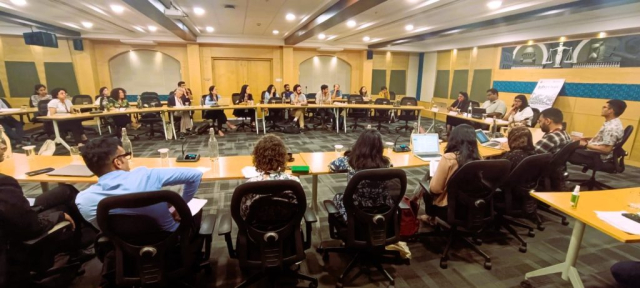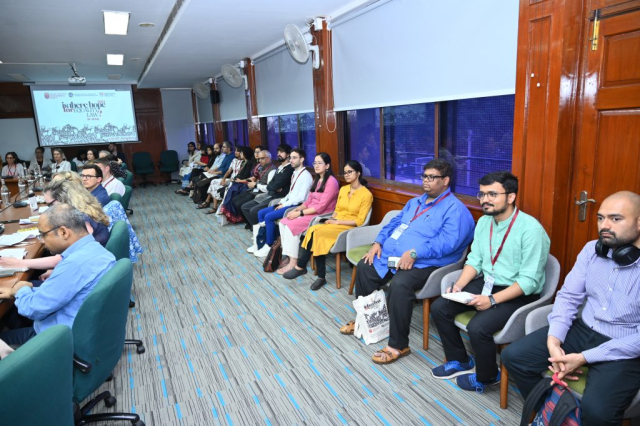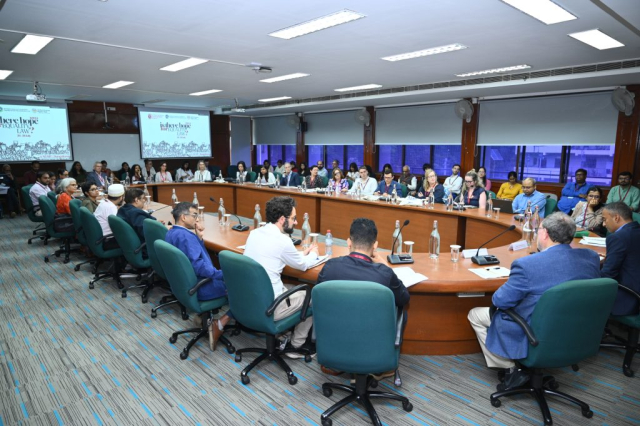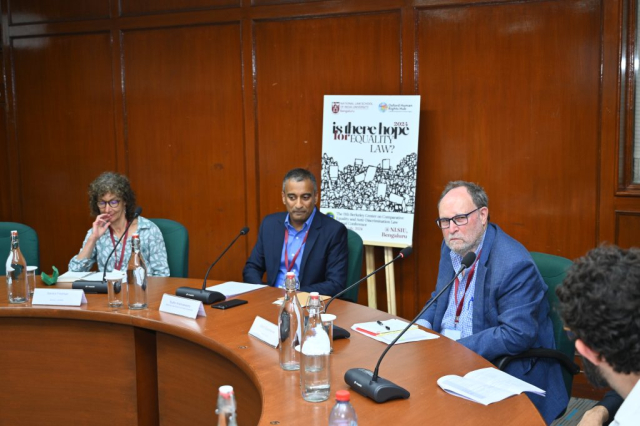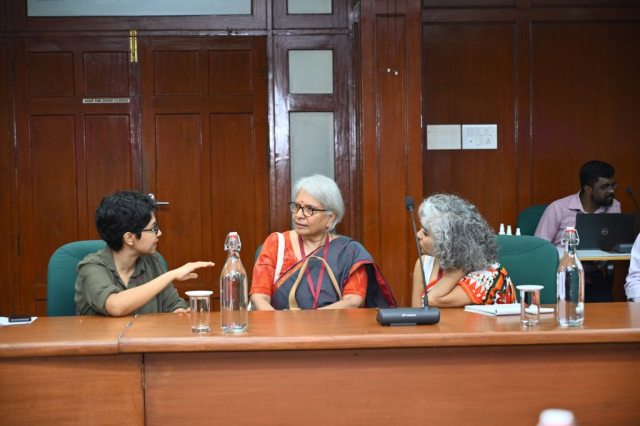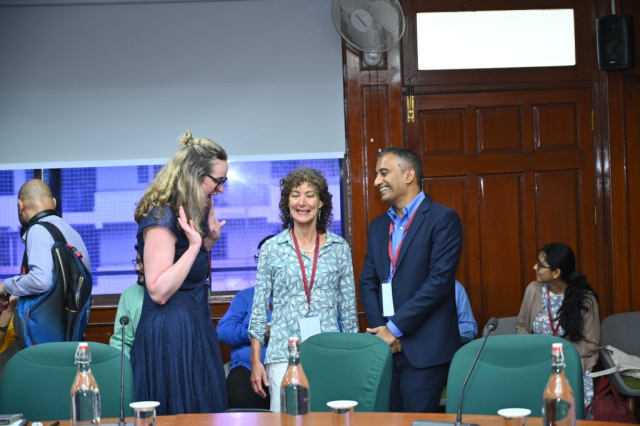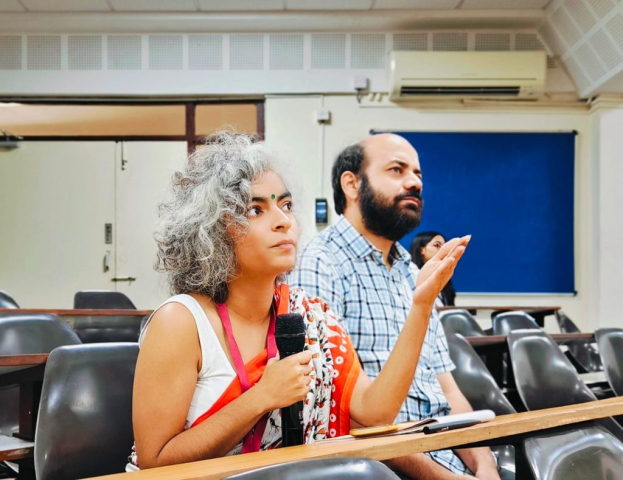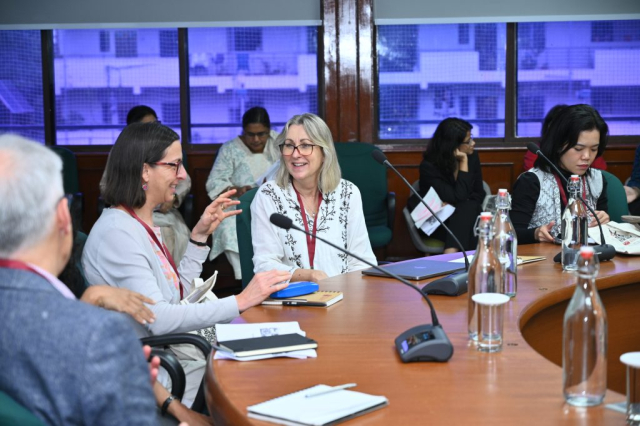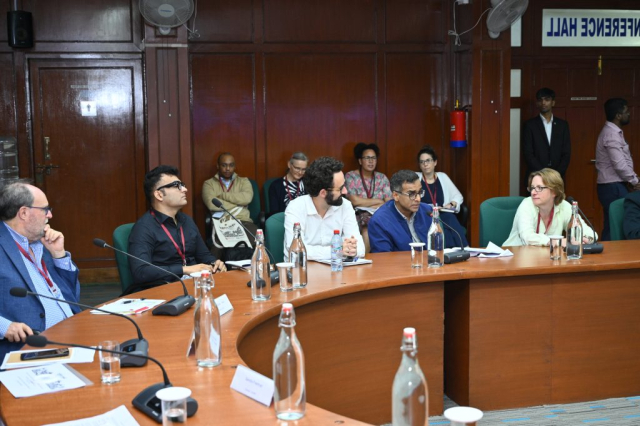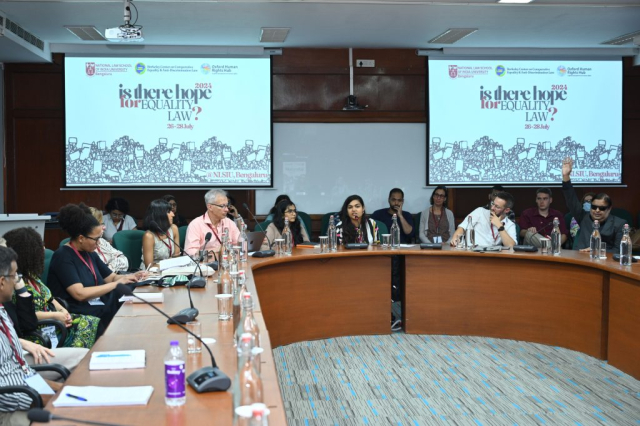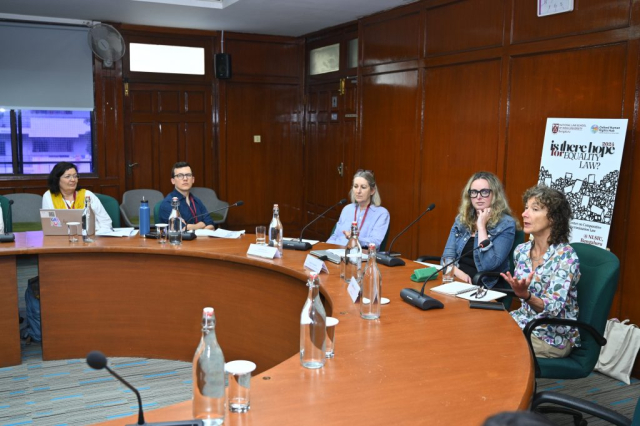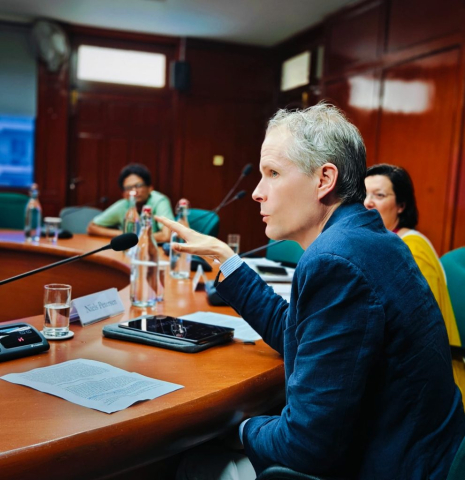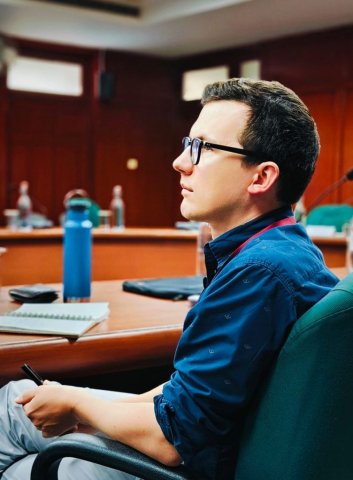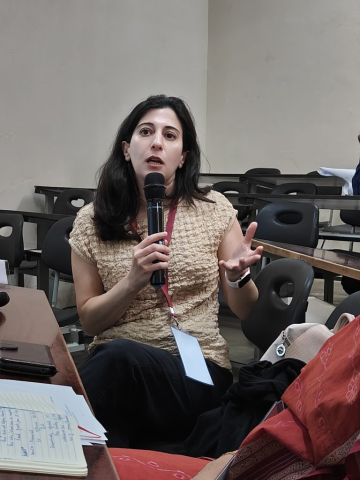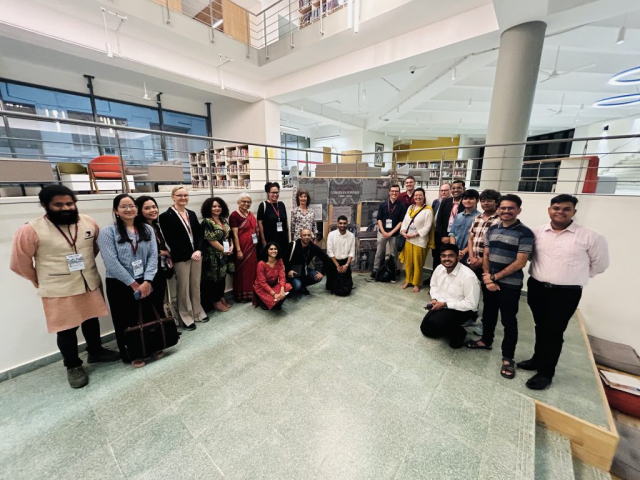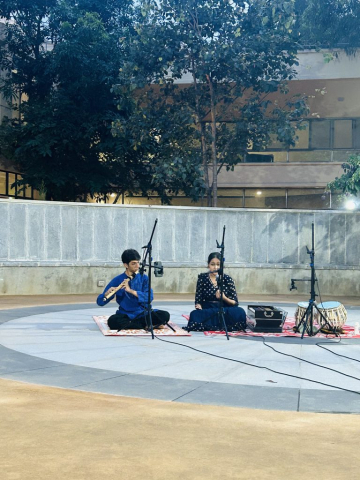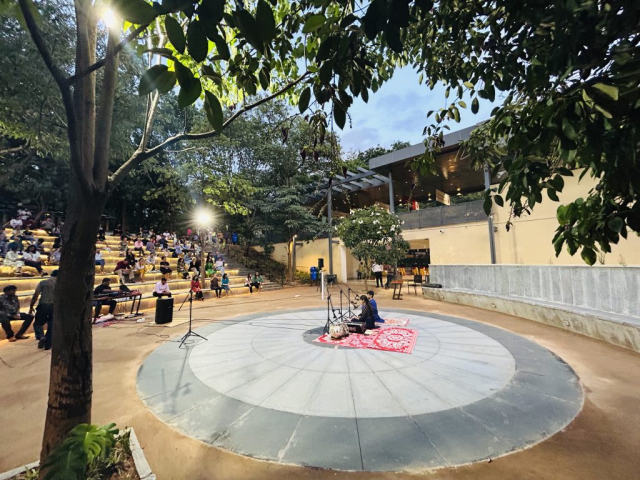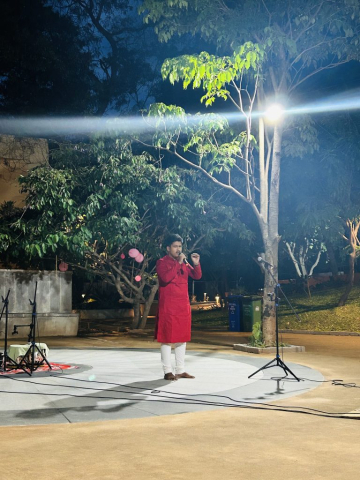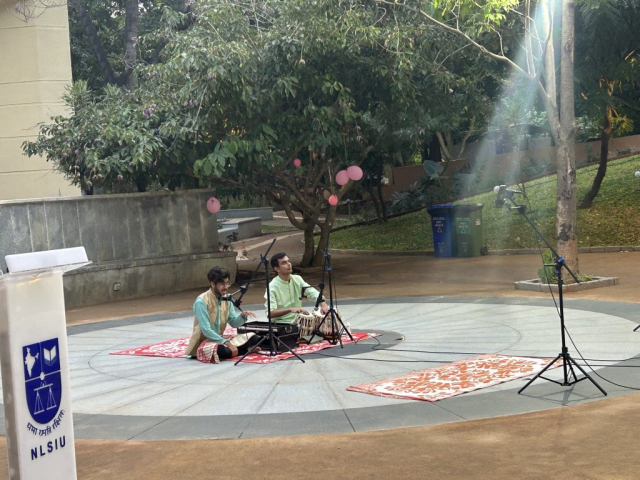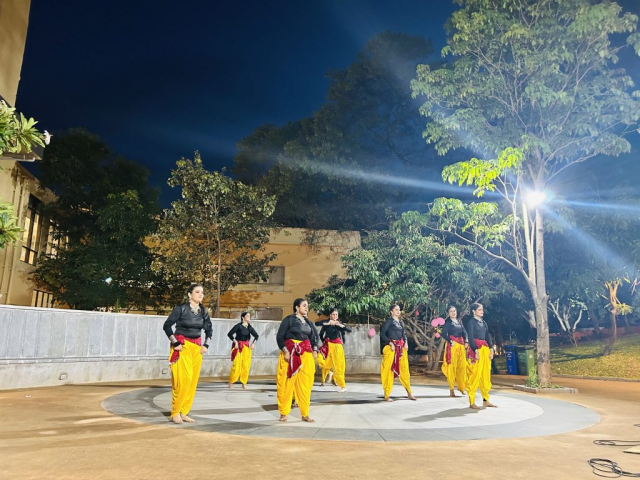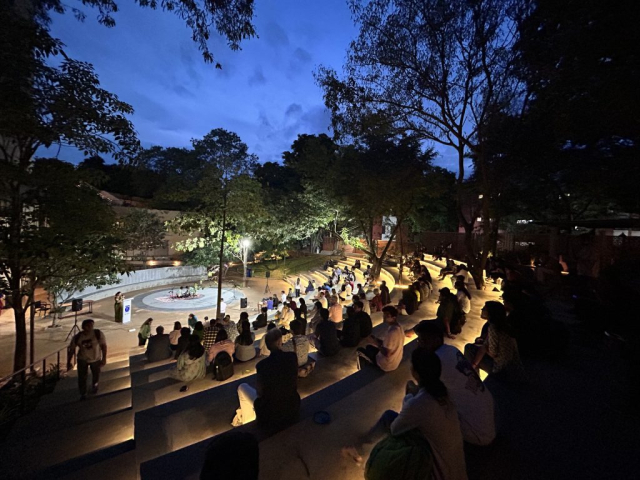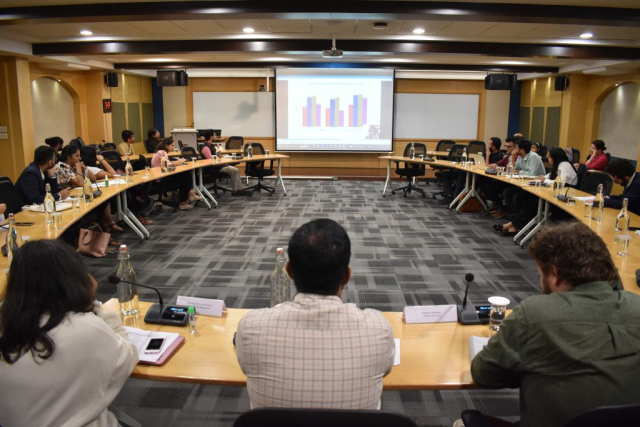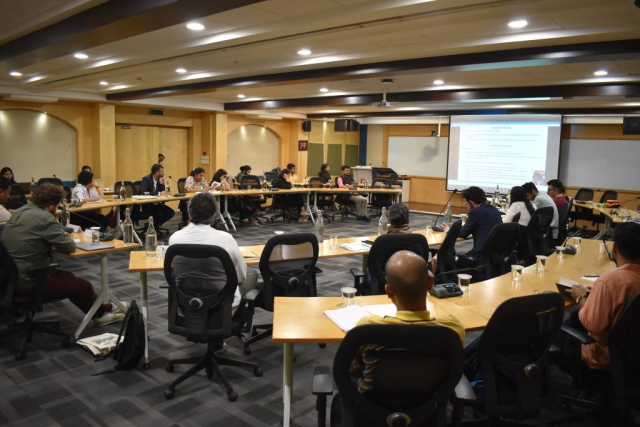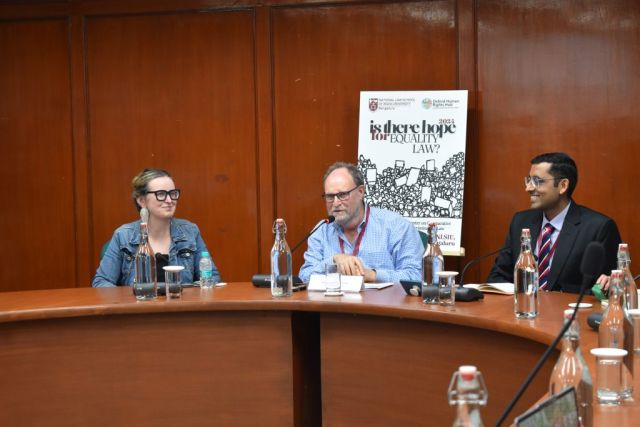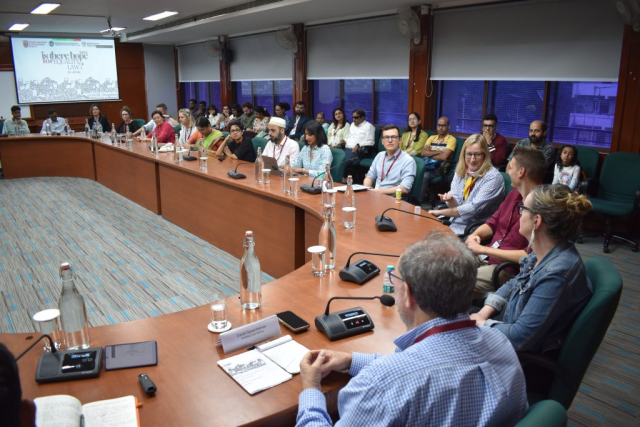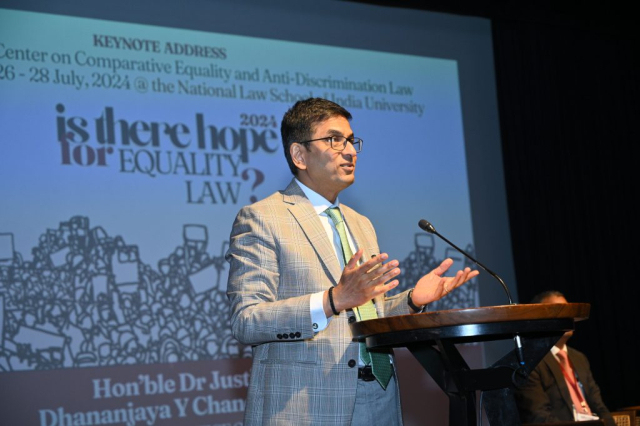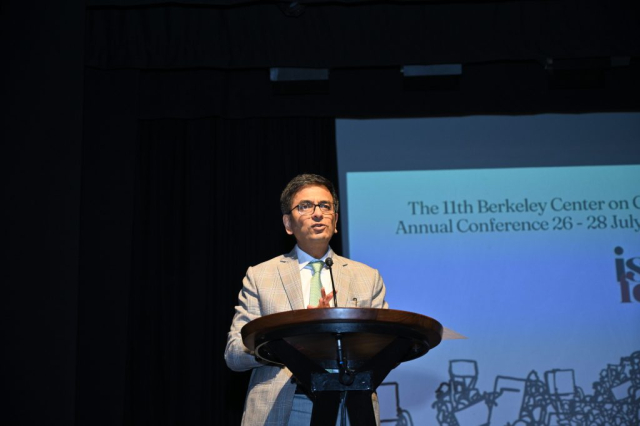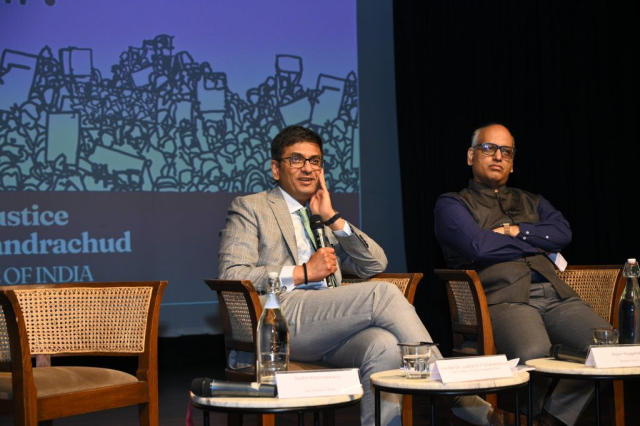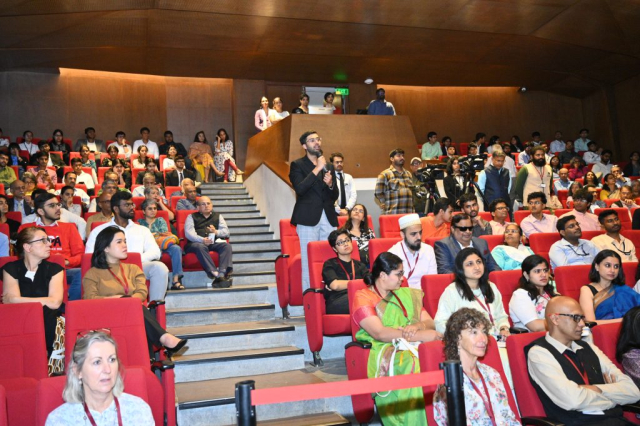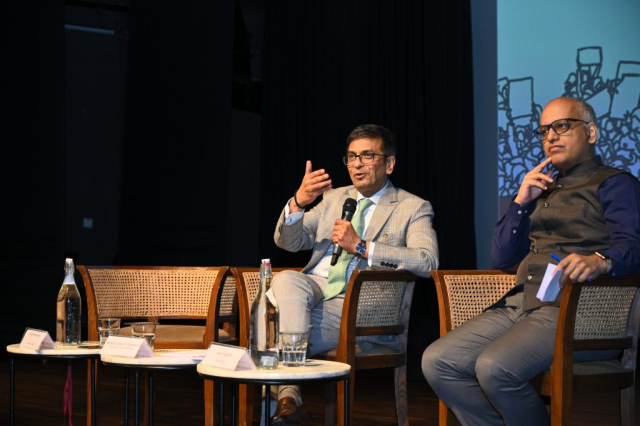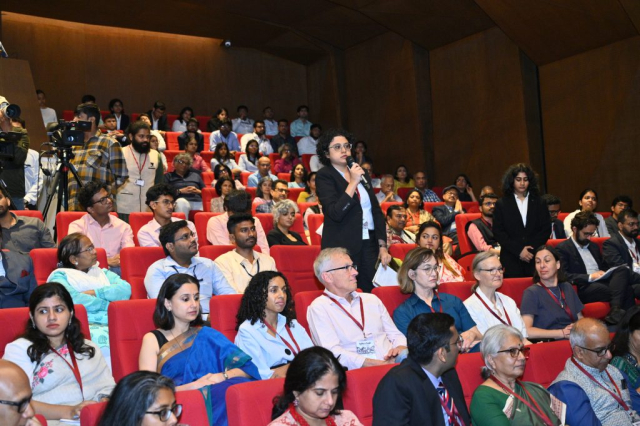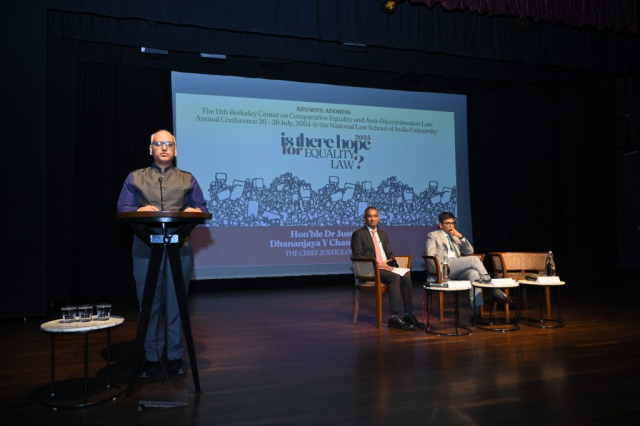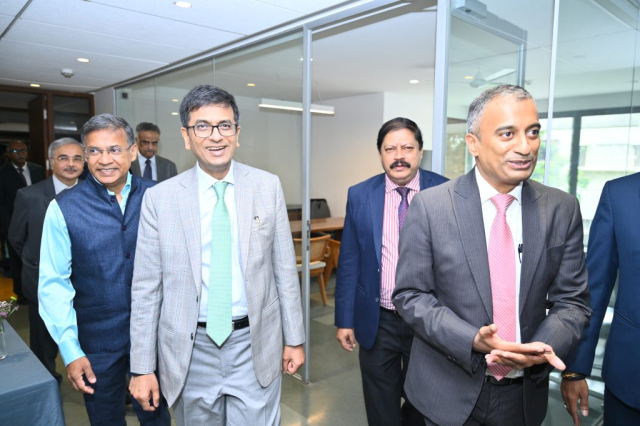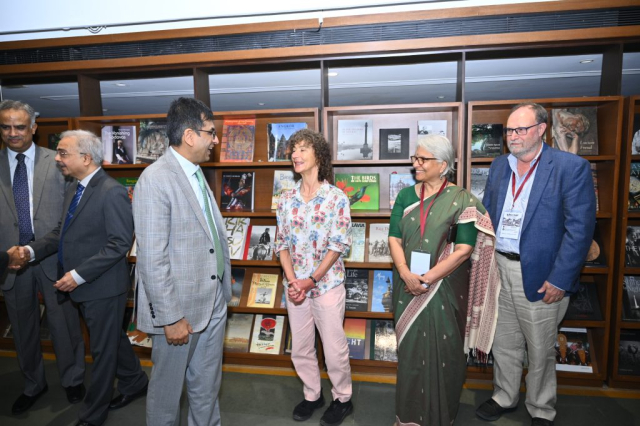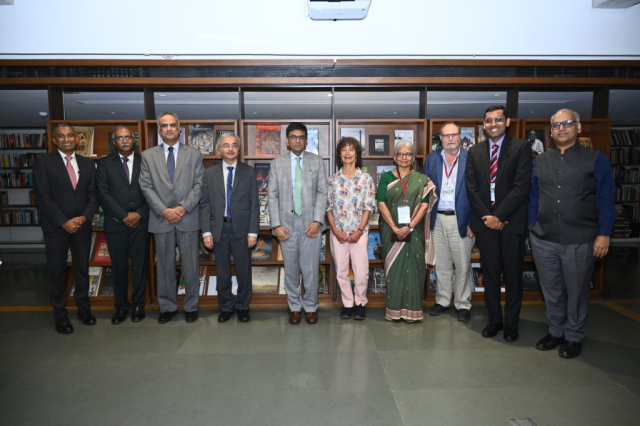Reflections on the 11th Annual Conference of the Berkeley Center on Comparative Equality and Anti-Discrimination Law
July 31, 2024
Over the past weekend, we were delighted to host nearly 130 participants from across continents for the 11th Annual Conference of the Berkeley Center on Comparative Equality & Anti-Discrimination Law, which was jointly organised by the National Law School of India University and the Oxford Human Rights Hub. The conference, which was held from July 26-28, 2024, revolved around the theme: Is there Hope for Equality Law?
Over the last eight months, the organising teams worked together to make this conference possible. Our ‘Call for Papers’ received over 245 abstracts and 6 panel submissions, from which we shortlisted close to 100 abstracts and had 5 pre-curated panels. For this conference, these papers were organized into 32 panels, involving all participants, out of which nearly 80 joined us in person. The sessions focused on direct and indirect discrimination; climate justice, refugee rights, criminal law and civil liberties; personal and family laws; gender justice; AI and digital rights; economic equality; linguistic equality among others.
Keynote Address by the Hon’ble Chief Justice of India
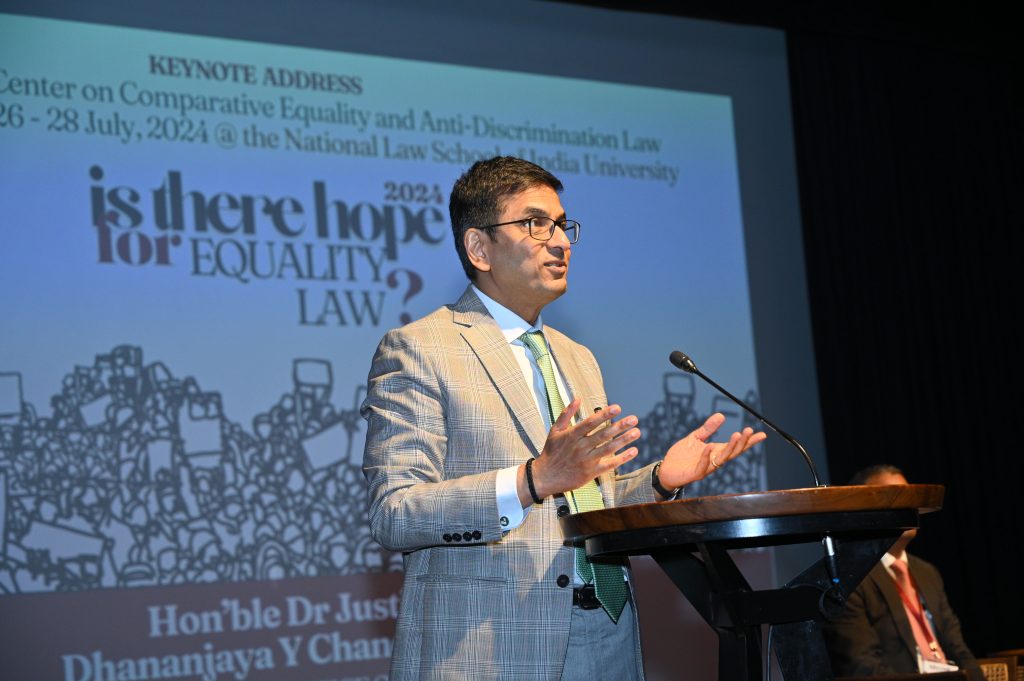 Hon’ble Dr. Justice D Y Chandrachud, the Chief Justice of India and Chancellor of NLSIU delivered the keynote address at the Conference at the Bangalore International Centre on July 28, 2024.
Hon’ble Dr. Justice D Y Chandrachud, the Chief Justice of India and Chancellor of NLSIU delivered the keynote address at the Conference at the Bangalore International Centre on July 28, 2024.
Excerpt from the address:
“In a formal equality paradigm all institutions are assumed to be inherently fair and only require removal of formal barriers to entry. However, how could institutions built in a hierarchy ridden world be so unquestionably egalitarian. Our systems are a creature of our creation and reflect our social realities. The focus of equality and anti-discrimination law must now be to adopt a new role in different circumstances. As we look to a future fraught with climate change disasters and the use of technology, lets commit to creating equitable structures to address these issues at the outset.
Equality is a moral, political and legal virtue. It holds all our social commitments together. As the Scottish feminist thinker of the nineteenth century Frances Wright said ‘equality is the soul of liberty; there is, in fact, no liberty without it’. I hope that we walk from this conference with a renewed energy to advance new frontiers of equality and anti-discrimination.”
Watch the full video of the keynote address here:
Reflections
Here, we capture some thoughts and reflections on this year’s conference from various participants and presenters.
 Prof. Sudhir Krishnaswamy
Prof. Sudhir Krishnaswamy
Vice-Chancellor, NLSIU
“I share two reflections on the title of this conference motivated by its location in Bangalore, India:
75 years ago, India would be an unlikely site for a conference on equality. Over 3000 years, the sub-continent had evolved a social and normative system that normalized the most intricate and violent models of graded inequality. These models were deeply ingrained and hegemonic. Yet in this inhospitable terrain, modern equality law has materially altered and ideologically challenged our inherited social system. So, despite everyday challenges, we are inclined to be optimistic about the prospects of equality in the 21st century.
Secondly, this transformation was initiated by the adoption of the Constitution of India 1950 which institutionalized a novel model of equality law that was far reaching and radical. It emphasized group equality as much as equality between individuals, adopted reservation as the policy tool to respond to inequality and empowered the political branches as the guarantors of equality instead of the courts. These republican anti-hierarchy models of equality law generate tensions with liberal constitutional democracy conventionally understood. Arguably, these tensions are the core of the fight to preserve liberal democracy from sliding into an authoritarian abyss across the world.
So the location of this conference in India, and at the National Law School, Bangalore, is an invitation to engage with the trajectory and practice of equality law in Indian constitutional democracy. We’re excited to be hosting this conversation and we’re certain we have much to learn from each other.”
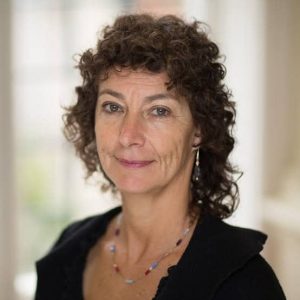 Prof. Sandra Fredman,
Prof. Sandra Fredman,
Professor of the Laws of the British Commonwealth and the United States, Oxford Human Rights Hub
“We chose hope for the conference theme (“Is there hope for equality law”) because we felt like we are living in very depressing and desolate times and we wanted to think in positive terms. And we wanted to have this gathering of people from many jurisdictions with very many different challenges to come together and share their different perspectives, challenges, and responses of their jurisdictions to those challenges. This is so that we could all learn together to improve our own jurisdictions, share our best practices, and give each other the hope that comes from working together for a better world. Overall, the experience of this conference has been very inspiring. And as I said, hope begins here because of the commitment and the passion of of young scholars, older scholars, people from lots of places. To further equality and to find ways to use legal structures for the sake of equality and to share rather than to compete, to see this as a partnership, a collaboration, and a conversation, and not a competition; because by working together, we can all improve things better together.
I think there are two takeaways from this conference:
(i) One is the richness of a comparative approach. Because we all face similar challenges, but we sometimes face quite different challenges depending on our context. We learn a lot about our own jurisdiction by understanding other jurisdictions. We find out what actually is specific to ourselves and what is also generalizable. And from that, we can look at the solutions that other jurisdictions are providing and decide whether they apply to ours, and also where they don’t apply. So I think the first thing we take away is the understanding that comparative law gives a richness and a value to the way in which countries across the world approach really similar challenges of inequality which is endemic in all societies, but come to it with different constitutional structures, different statutes, different economic development, different histories.
(ii) The second thing is the bringing togetherness of it – of people, younger people, more senior people, people from global north, people from the global south, to participate together in this conversation, and in the hope; and that’s the mission of the Oxford Human Rights Hub, which is to create a global community of scholars, practitioners and policy makers who are working together to find the best practice for equality, and to continue to be a community of scholars.”
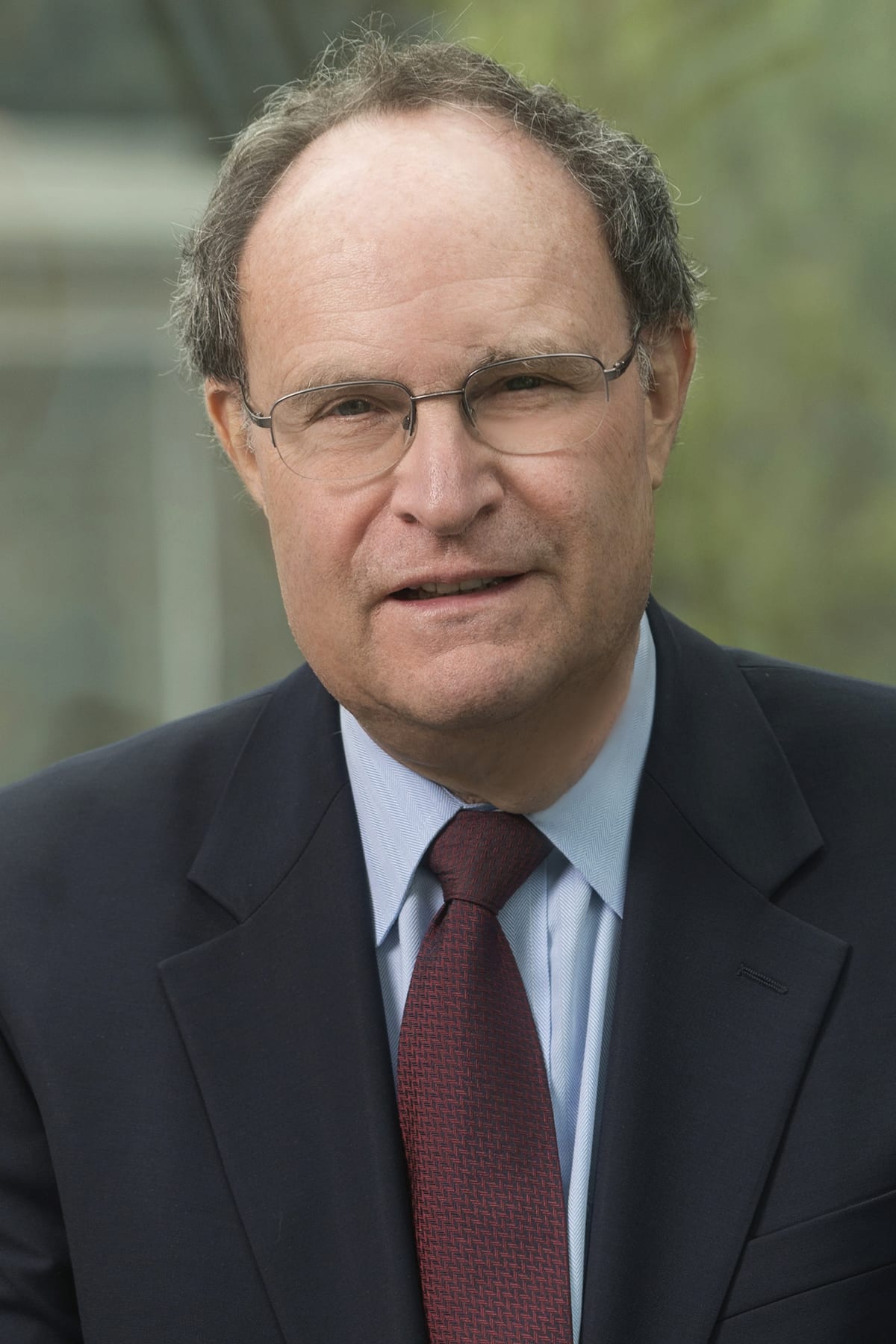 Prof. David Oppenheimer,
Prof. David Oppenheimer,
Clinical Professor of Law, Faculty Co-Director, Pro Bono Program,
Director, Berkeley Center on Comparative Equality and Anti-Discrimination Law
“It’s been a wonderful conference. The quality of the presentations, the quality of the papers, it’s it’s wonderful to see people coming from Europe, Australia, Africa, North America and coming to India to meet here, it’s been really inspiring. I chaired a panel on gender equality, and on affirmative action, and I spoke a little bit about my own work as well. Also, when someone as important in defining the law and defining equality rights as the Hon’ble Chief Justice comes and and speaks to us, it is something that gets a lot of attention. It’s the kind of thing that catalyzes people to think more deeply about these issues.
This is my first time At NLS, and although I have visited India before, I’ve never been to Bangalore. And there’s just a way that people connect when they’re in a room together physically. Not only in the panel discussions, but also in the dining room, in the halls, or taking walks together. And those are the connections that lead to the kind of collaborations that our Center is really all about. We bring together people usually from almost every continent. And we help people find cross border collaborators, and we help people think about cross border comparisons, cross border collaboration to help scholars and activists find ways of working together around issues of equality and of anti-discrimination law.
I hope that people will be inspired to work even harder on these issues, both as scholars and as teachers, and as change agents and activists, that coming together as a group sends people home with a little more motivation, and it’s not something that one person does. This is part of a greater movement.”
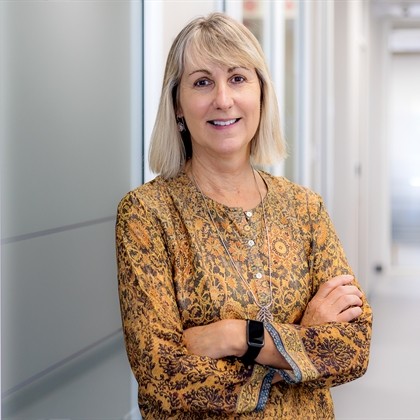 Prof. Cathi Albertyn,
Prof. Cathi Albertyn,
Professor of Law & South African Research Chair in Equality, Law and Social Justice, School of Law, University of the Witwatersrand, Johannesburg
“I’ve been to the Equality themed conferences 4 or 5 times earlier. However, this is the first time that I’ve been to one that’s physically located in the Global South. Coming here and seeing an audience that is not just European, but having an audience that was much more representative of the Global South has been very exciting. As a South African, also from the Global South, hearing many papers from Indian scholars around equality issues in India has been very eye opening, and the ability to make connections with Indian equality scholars and equality lawyers has has been a real blessing. I’ve really enjoyed that. I think the the benefit of conferences like this is that not only are you able to present and showcase your own work, which is always lovely to do, but you’re able to hear people that you wouldn’t necessarily read or see or hear. The panels are really well constructed and there are scholars who are doing really interesting and and insightful work. So that’s been very exciting.
When I had to speak on one of the panels, what was interesting was that I was forced to think more deeply about the meaning of the conference and my own experiences of being an equality lawyer. And it was exciting to to hear people’s responses. I realized that even though we’re different and we work in different places, a lot of the issues are the same. For example, people may grasp what’s happening in South Africa from their own perspective, but there’s a lot of resonance of experiences. The cross country exchanges and experiences, as well as the understanding that we are very much the same, even though we’re very different – that for me has been the most wonderful part of the conference. I’ve seen people talking in little groups at tea and sitting with different people at dinner and really engaging in their work. I think many of us here are going to go away enriched by the experience of sharing ideas, of getting feedback, of being asked difficult questions that we can’t answer, of being forced to think and reflect, and to really push our own work further, and upwards, sort of beyond our current intellectual boundaries. And I love the fact that if people couldn’t travel here, they’re still able to participate.”
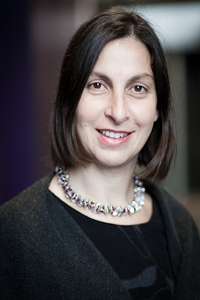 Prof. Beth Goldblatt,
Prof. Beth Goldblatt,
Professor in the Faculty of Law, University of Technology Sydney
“I have been to Bangalore before but this is my first time visiting the NLS campus. This conference is a wonderful opportunity for comparative, discussion of law across the world, and particularly on the topic of equality. And what I hope to get from a conference like this is to have my mind expanded, to hear about new things that I didn’t know about, and to hear what else is going on in the world that might inform the struggles in my own country or in other places where I might work.
I also presented on the relationship between equality law and climate change. And I’m interested in how climate change is requiring us to think of new ways of using law, to advance the needs and interests and rights of humans and non-humans. Many of us are academics but we’re also seeing our work and our scholarship informing courts, informing activism and advocacy around change in the world, social change. And so, conferences like this help us improve what we’re doing and to advance those broader changes that we’re all working towards.
I hope that the discussions here at this conference, and the fact that the courts are taking this conference seriously, means that these issues are seen as serious, around India and internationally; and that it gives legitimacy to the work that we’re doing, but also raises the profile of equality issues, at a time where there are vast inequalities all over the world of class, race, poverty, disability and so on. So, this is a great opportunity to put the spotlight on those aspects.”
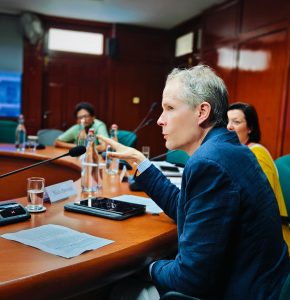 Prof. Niels Petersen,
Prof. Niels Petersen,
Professor of Public Law, International Law, EU Law, and Empirical Legal Studies, University of Münster
“I thought the conference was extremely well organized and I really enjoyed it. It was a very inspiring one with lots of good presentations and good discussions – not just in the conference rooms, but also over lunch and coffee breaks. I presented a paper which focused on whether inaction on climate change is a discrimination against future generations under international human rights law. One important aspect of such conferences are the connections we make, especially international connections. And another aspect is to provide ideas. And I think these kinds of conferences can not only provide ideas but also inspire them. And the more people go into the same direction and promote similar ideas, the more it can also translate into policy ideas later I believe. But it is a long process.
As someone in my profession, I think you can make an impact not just through policy, but also through teaching. And it’s important to to see what other people are thinking, to to hear about the latest developments and ideas, and to also put that into the classroom and confront students with it and, and shape the the outlook of students about the world. It’s really about making connections with other scholars working in the field. And I think that’s why I preferred to join this conference in person and have more conversations with other people.”
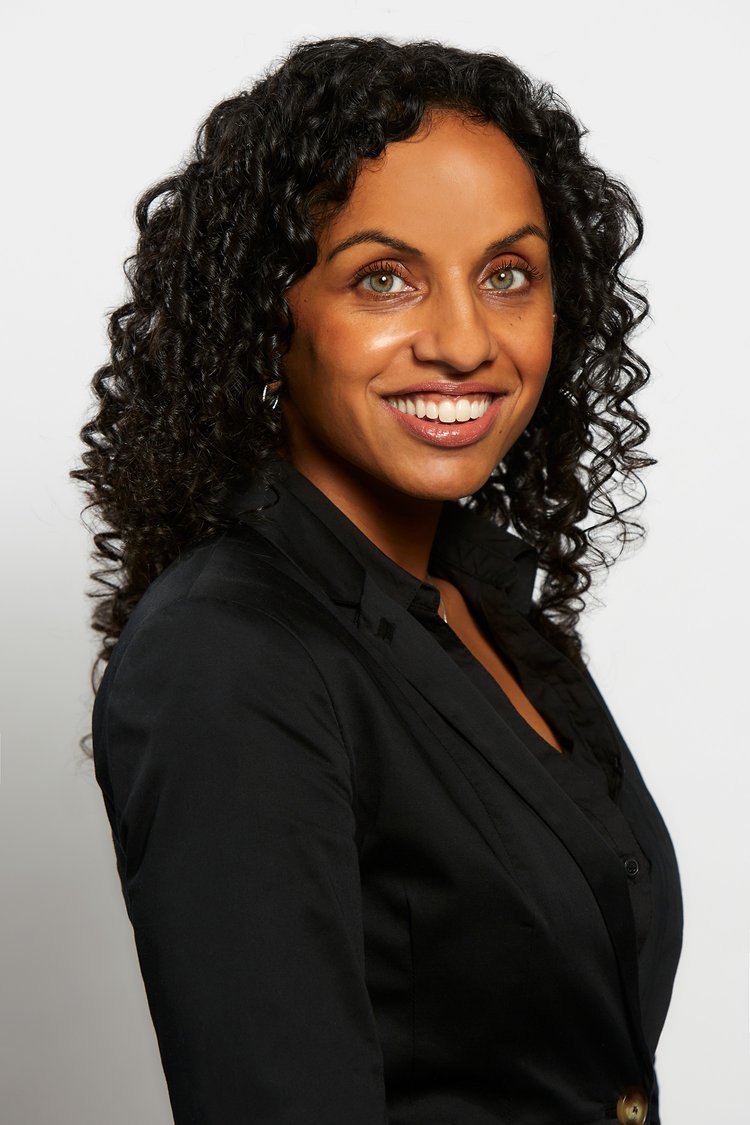 Dr. Ramona Vijeyarasa,
Dr. Ramona Vijeyarasa,
Associate Professor, Faculty of Law, University Of Technology Sydney
“I particularly value comparative research. And I love that what sits at the heart of the Berkeley Center, and what we’re trying to do with this conference, is to bring together scholars from all around the world to compare jurisdictional experiences, to talk about what comparative research can offer in uncovering good practice, gender equality legislation, anti discrimination legislation. So it’s been great to meet and connect with like minded scholars. Sometimes academics work in isolation. So I’m hoping to gain new insights and new ideas, new networks for collaboration here. Multi-country projects are wonderful when you can work with scholars from other countries. And the fact that we have scholars here from South Africa, across Europe, India, Australia, New Zealand – there’s real diversity here. And I think that possibility of collaboration is also really exciting.
At the conference, I presented on the ‘then and now of gender responsive lawmaking’. The idea here is that feminists have been asking for gender responsive laws or women’s centered legislation for decades. But I think there’s a major challenge in achieving that. And the challenge lies with linguistic and geopolitical biases that mean we’re overlooking some good practices from the Global South. And as someone who’s of the Global South origin, (my family is originally Sri Lankan, and I was born and raised in the Global North in Australia), I think it’s important to challenge those biases and to encourage English language legislators to look beyond the anglosphere so that we’re not missing pioneering legislation in other parts of the world. For example, I think it’s really remarkable that the Philippines was the first country in the world to introduce 10 days of paid leave for victims of domestic violence, the first country in the world to legislate gender responsive budgeting. Mexico and Colombia all have laws on gender responsive budgeting. Brazil has a fantastic bill that talks about intersectionality in regulating the harms and discrimination from AI. And so I think these are the kind of examples that we don’t want overlooked if we are biased as legislators and activists in calling for gender responsive law reform.”
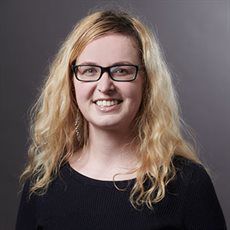 Dr. Meghan Campbell,
Dr. Meghan Campbell,
Reader in International Human Rights Law, University of Birmingham
“This was my first time to NLS and it was just so lovely to meet other colleagues who are working in equality law. There are so many people asking similar questions about equality law, all over the world, and it was a real privilege to get to talk to people from Indonesia, India, Belgium, Canada, UK, Netherlands, Australia and New Zealand. This kind of collaborative comparative richness is so unique and unparalleled. And that co-comparativeness is only focused on equality law. That’s really, really unique. Often in comparative conferences, we’ve looked at a very broad area of public law. So to have this many people who’ve dedicated their lives in the research of equality law, getting to talk about the similarities, the differences, and what works in different regions – it just sparks so much imagination!
Equality law is at a bit of a crossroads moment. People have a lot of hope in equality law to end the discrimination, the inequality they see every day on the street, and in their own lives. They have so much hope in it, and they see that hope not being realized. They see things not changing, That there’s still hopelessness. That there’s still stigmas against certain types of people in the workforce, or that it’s only certain types of people that are able to succeed in life. And it’s easy then to dismiss equality law as useful or relevant and to think about different avenues for redress. And so I would like to see from this conference a renewed energy and thinking about how equality law, how the doctrines, the theories, the court process, can actually start to make that change that we all desperately want to see.”
More interviews will be updated on this page. This post has been edited for length and clarity.
Gallery
Day 1
Day 2
Day 3


